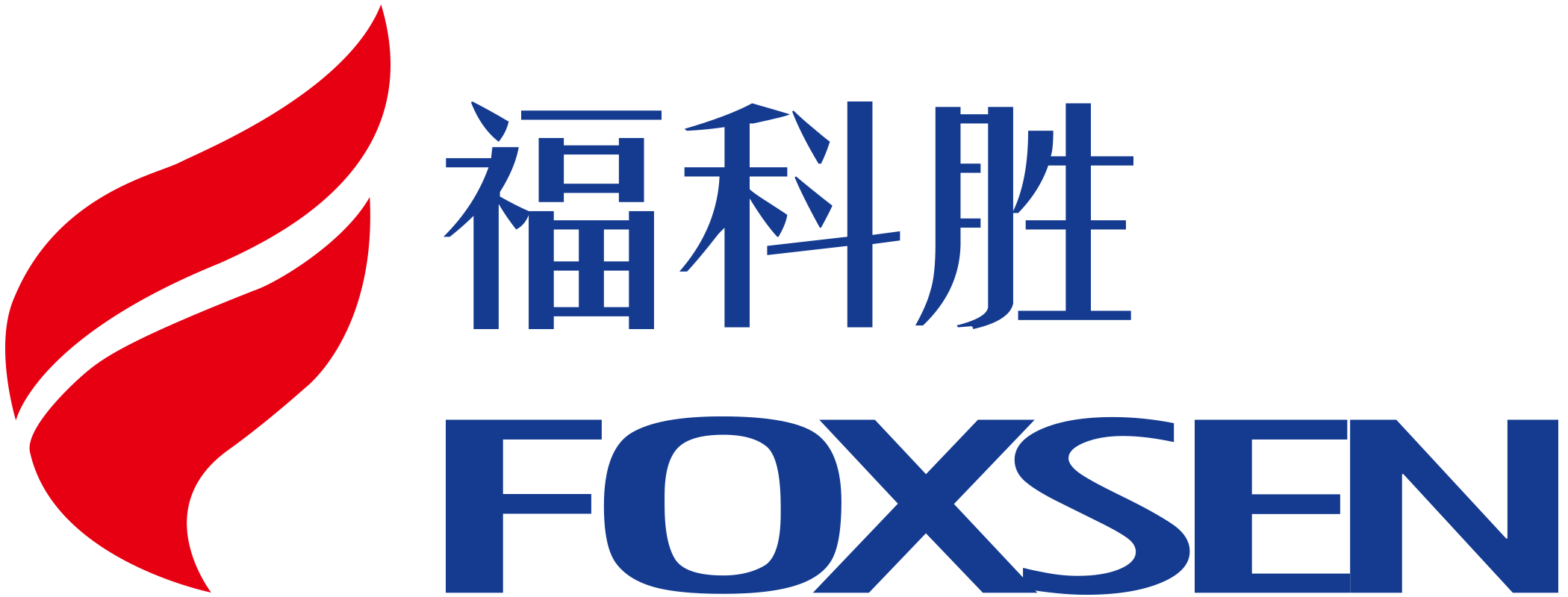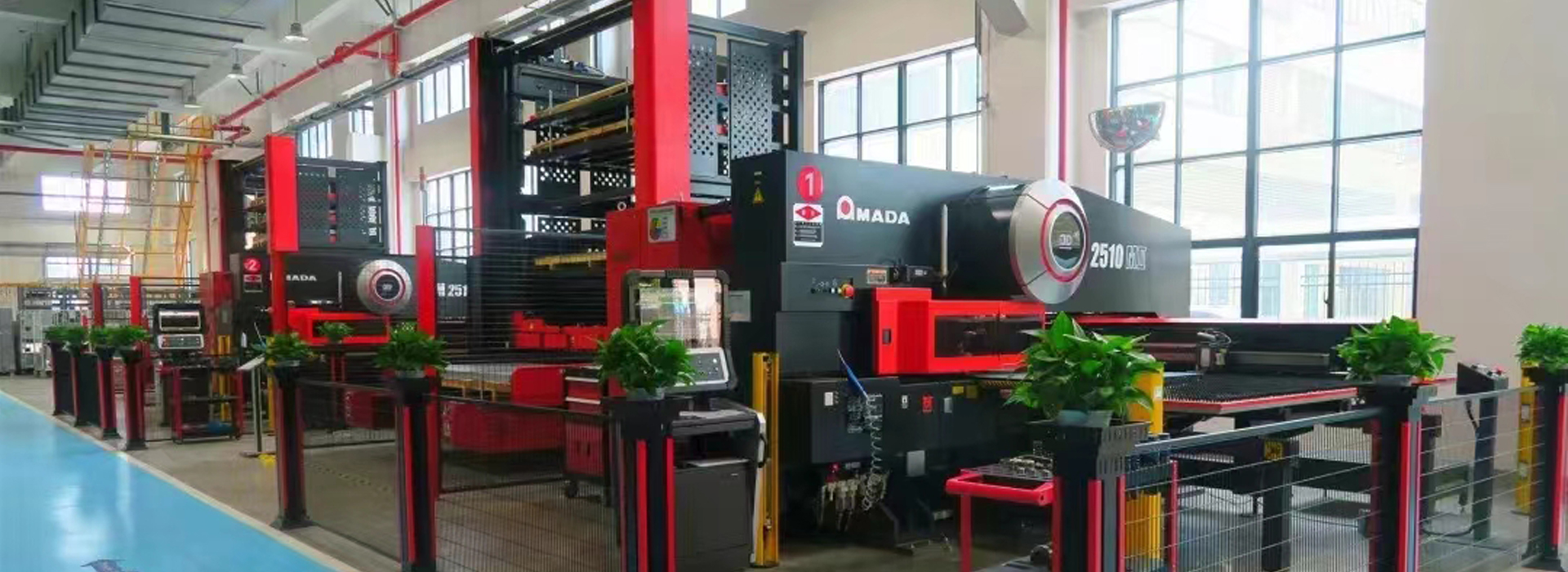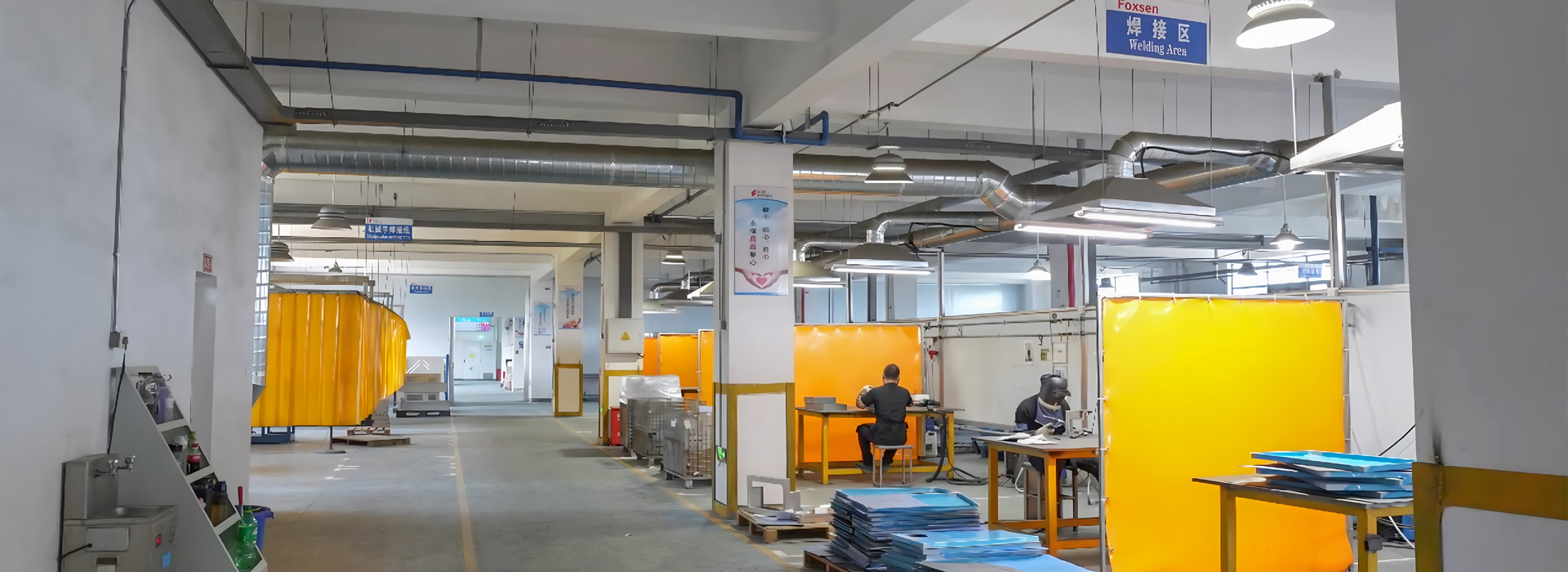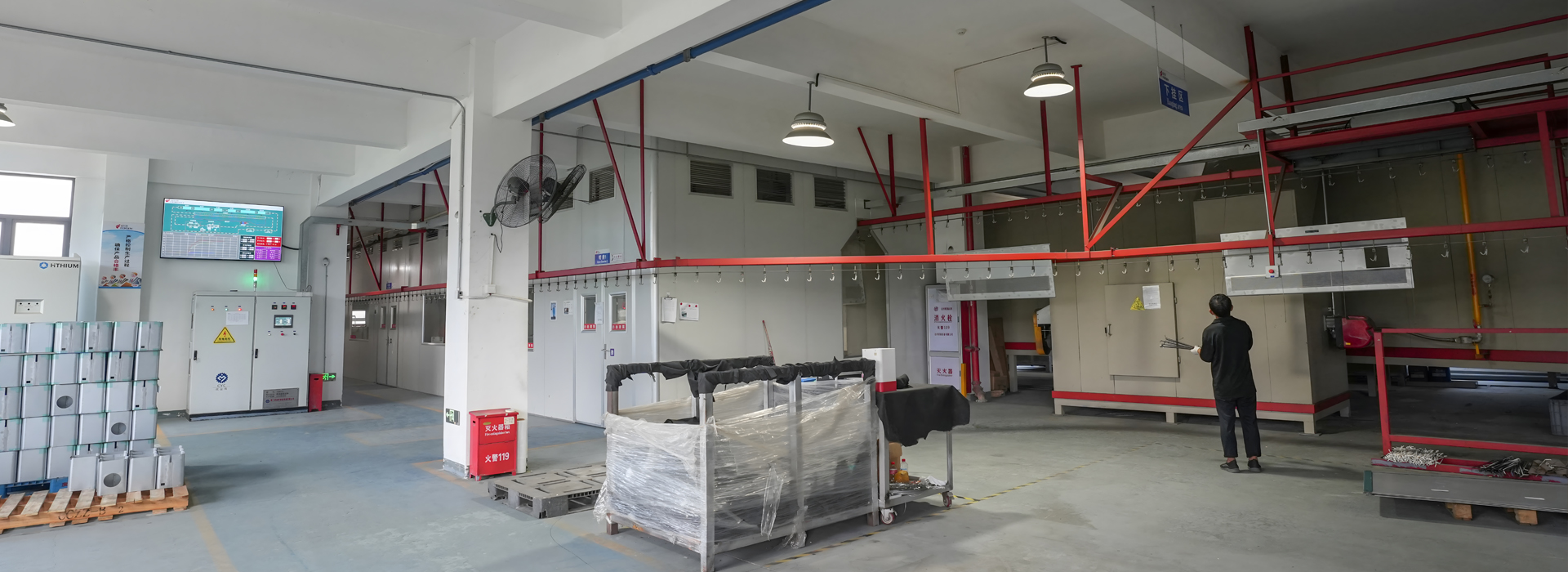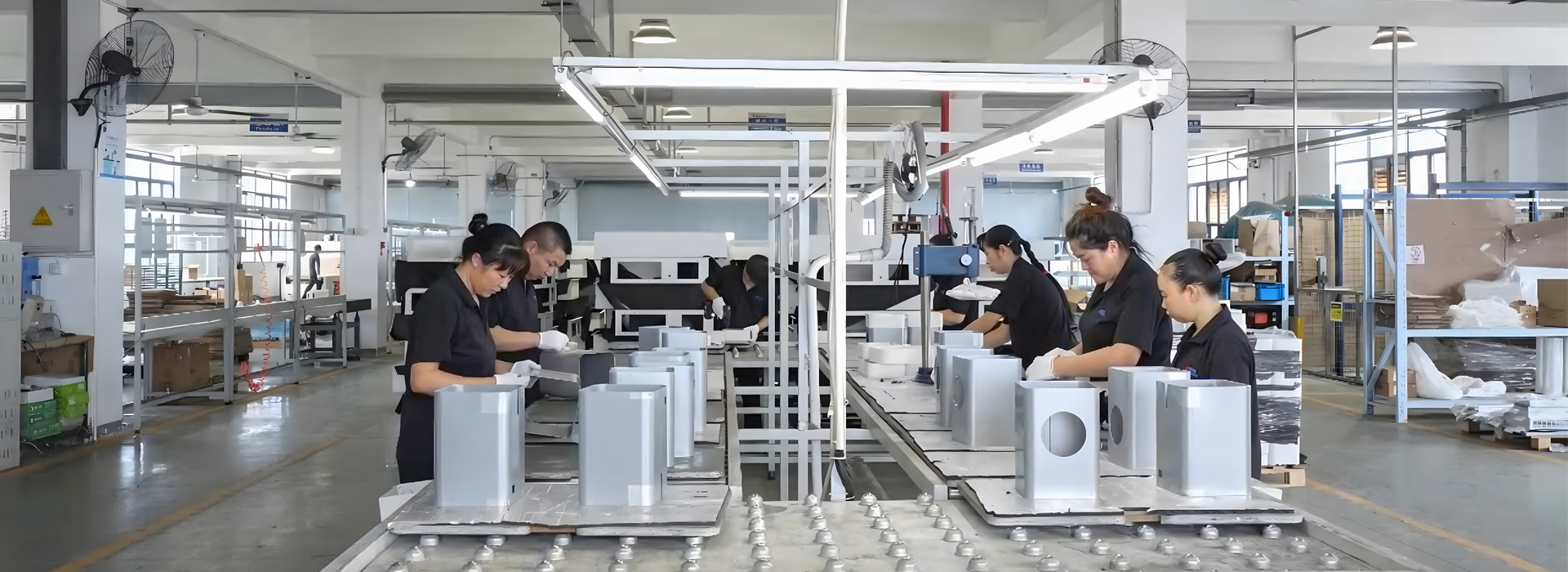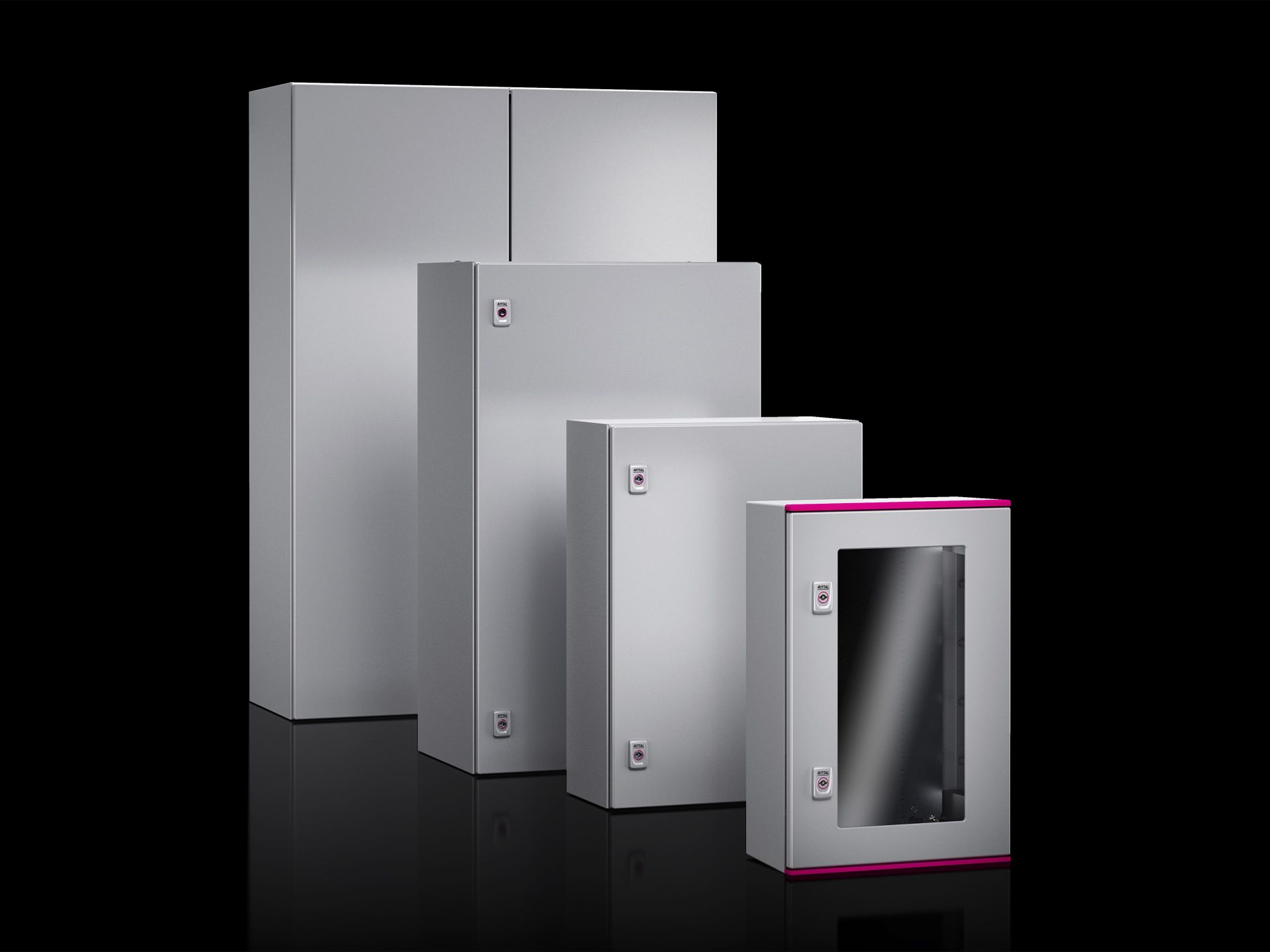Durable sheet metal industrial enclosures play a vital role in modern industrial operations. These enclosures protect critical equipment, ensuring smooth performance in harsh environments. Their importance becomes clear when you consider the growing demand for such solutions. In 2023, the Sheet Metal Fabrication Service Market reached a value of 50.75 USD billion, highlighting their widespread adoption. These enclosures are essential for safeguarding machinery against dust, moisture, and impacts. By investing in high-quality materials, you ensure long-term safety and reliability for your equipment.
Key Takeaways
Strong sheet metal covers keep equipment safe from dust, water, and damage. This helps machines work well in tough places.
Using good materials for covers makes machines last longer. It lowers repair costs and stops expensive fixes.
Making covers fit the equipment better gives more safety. It also helps machines work well in different work areas.
Safe covers that meet rules protect workers from danger. They also make the workplace safer and reduce risks.
Modern tools like laser cutters and CNC machines make covers exact and strong. This helps machines work well for a long time.
Protection and Durability
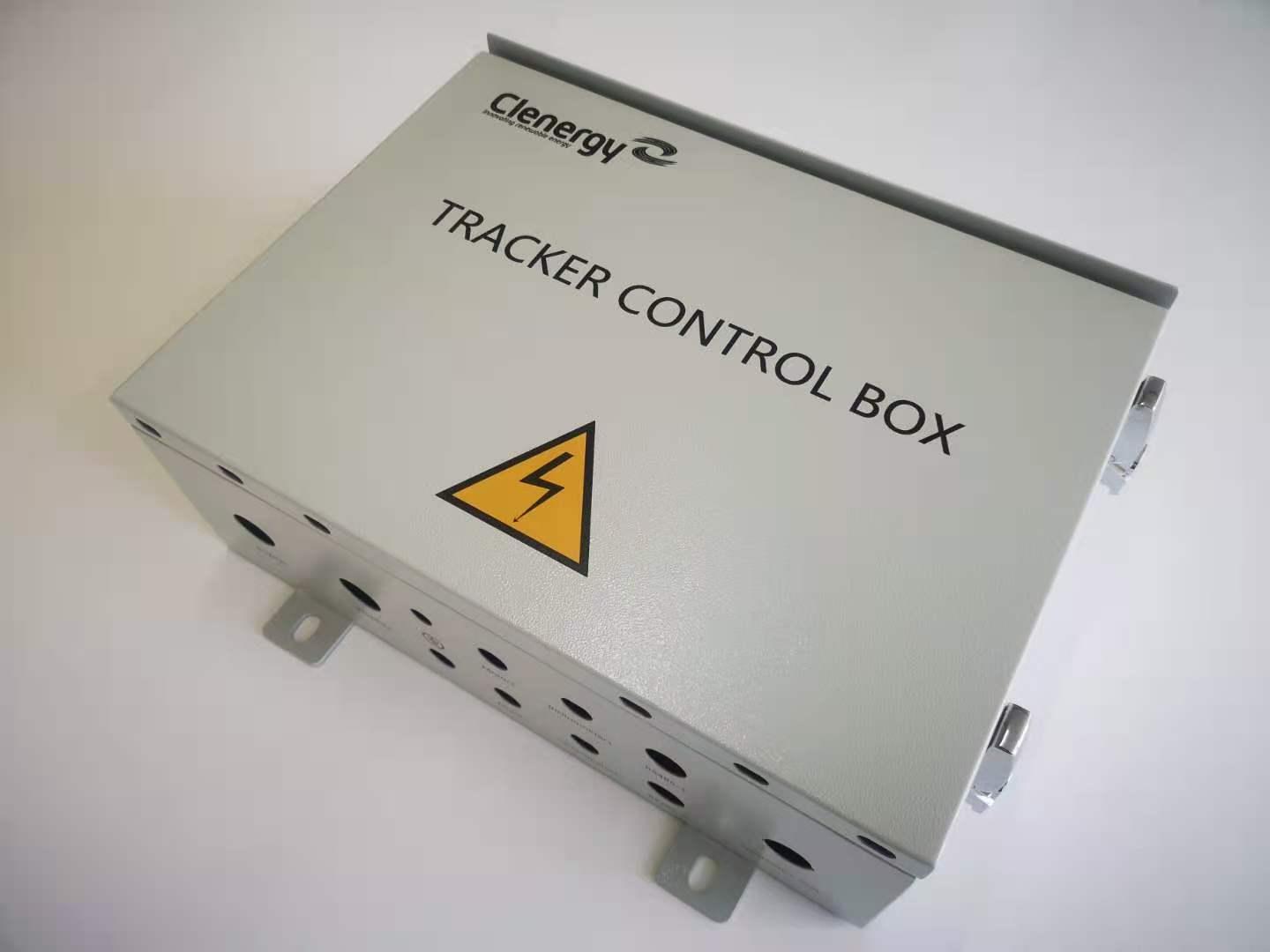
Shielding equipment from environmental factors
Industrial environments expose equipment to harsh conditions that can compromise performance. Dust, moisture, and temperature fluctuations are just a few of the challenges your machinery faces daily. Sheet metal industrial enclosures act as a protective barrier, shielding sensitive components from these environmental factors. For example, wind and water quality can significantly impact equipment performance. Enclosures mitigate these risks by creating a controlled environment, ensuring your systems remain operational even in extreme conditions.
Studies have shown that environmental factors like wind and water temperature can degrade equipment over time. By housing your machinery in durable enclosures, you reduce the likelihood of damage caused by these elements. This protection is essential for maintaining the reliability of your operations and avoiding costly downtime.
Preventing physical damage and wear
In busy industrial settings, equipment often faces physical threats such as accidental impacts, vibrations, and wear from constant use. High-quality sheet metal enclosures provide a robust shield against these hazards. The strength of materials like stainless steel and galvanized steel ensures that your equipment remains safe from dents, scratches, and other forms of physical damage.
Research highlights the importance of using high-quality materials to prevent wear and tear. For instance, monitoring wear states in tools has shown that superior materials significantly reduce damage over time. This makes sheet metal industrial enclosures an essential investment for protecting your machinery and extending its usability. By choosing enclosures crafted from premium materials, you safeguard your equipment from the rigors of daily operations.
Extending the lifespan of machinery with high-quality materials
The longevity of your equipment depends on the quality of its protection. Sheet metal industrial enclosures, made from materials like cold-rolled steel and stainless steel, are designed to withstand the test of time. These materials resist corrosion, wear, and environmental stress, ensuring your machinery operates efficiently for years.
Advanced manufacturing techniques, such as laser cutting and CNC bending, enhance the precision and durability of these enclosures. Studies have demonstrated that high-quality materials not only reduce wear but also improve the overall performance of equipment. This makes durable enclosures essential for extending the lifespan of your machinery and maximizing your return on investment.
Tip: Investing in high-quality enclosures today can save you from costly repairs and replacements in the future. Protect your equipment and ensure long-term efficiency with durable solutions.
Safety and Compliance
Ensuring worker safety through secure housing
Worker safety is a top priority in any industrial setting. Exposed equipment can pose serious risks, including electrical shocks, burns, or accidental injuries. Sheet metal industrial enclosures provide a secure housing solution that minimizes these dangers. By enclosing sensitive machinery, you create a physical barrier that protects workers from direct contact with hazardous components.
The demand for safety enclosures has grown significantly in industries like oil and gas, where volatile environments increase the likelihood of accidents. Regulatory frameworks now mandate the use of certified enclosures to enhance worker safety. This trend reflects the essential role these enclosures play in creating a safe and efficient work environment. When you invest in high-quality enclosures, you not only protect your workforce but also foster a culture of safety in your operations.
The hazardous area enclosures market has expanded due to strict safety regulations.
Rising industrial accidents have driven the adoption of secure housing solutions.
Industries operating in high-risk environments, such as chemical plants, rely heavily on safety enclosures.
Meeting industry standards and regulations
Compliance with industry standards is essential for maintaining operational integrity. Regulatory bodies require businesses to adhere to strict guidelines for equipment safety. Sheet metal industrial enclosures are designed to meet these standards, ensuring your facility remains compliant. For example, enclosures used in hazardous areas often need certifications like NEMA or IP ratings to guarantee their effectiveness.
By choosing certified enclosures, you demonstrate your commitment to safety and quality. These products undergo rigorous testing to ensure they can withstand harsh conditions and protect both equipment and personnel. Meeting these standards not only reduces liability but also enhances your reputation as a responsible operator. When you prioritize compliance, you build trust with stakeholders and avoid costly penalties.
Reducing risks associated with exposed equipment
Exposed equipment can lead to a range of operational risks, from accidental damage to system failures. These risks can disrupt workflows and compromise safety. Durable enclosures act as a shield, reducing the likelihood of such incidents. They protect machinery from external impacts, dust, and moisture, ensuring consistent performance.
In addition to physical protection, enclosures help prevent unauthorized access to sensitive components. This feature is essential in environments where tampering or accidental interference could lead to catastrophic outcomes. By reducing these risks, you create a safer workplace and improve overall efficiency. Investing in robust enclosures is a proactive step toward minimizing hazards and maintaining uninterrupted operations.
Note: A safe workplace starts with secure equipment. Durable enclosures are an essential tool for reducing risks and ensuring long-term safety.
Operational Efficiency
Minimizing downtime caused by equipment failure
Downtime can disrupt your operations and lead to significant financial losses. Sheet metal industrial enclosures play a critical role in maintaining operational efficiency by protecting your systems from environmental and physical damage. These enclosures prevent the entry of dust and moisture, which can compromise sensitive components. By creating a controlled environment, they ensure your equipment operates reliably, reducing unexpected breakdowns.
The integration of predictive maintenance solutions further enhances this reliability. With tools like IoT-enabled sensors and data analytics integration, you can monitor equipment health in real time. Predictive intelligence allows you to identify potential issues before they escalate, minimizing downtime and keeping your systems running smoothly. This proactive approach not only improves work efficiency but also supports future-proofing industrial operations.
Reducing maintenance and repair costs
Frequent repairs and maintenance can quickly inflate your operational expenses. Durable enclosures, designed with energy-efficient models and robust materials, help reduce costs by extending the lifespan of your equipment. These enclosures prevent the loss of conditioned air and protect components from wear and tear, ensuring long-term performance.
The integration of essential IT solutions, such as remote monitoring and control systems, further reduces maintenance costs. These systems allow you to track equipment performance from anywhere, enabling timely interventions and reducing the need for on-site inspections. By leveraging digital tools like cloud computing infrastructure and AI-driven analytics, you can optimize maintenance schedules and allocate resources more effectively.
Streamlining industrial processes with essential IT solutions
The integration of essential IT solutions into your operations can transform the way you manage processes. Tools like supply chain management systems and cloud-based platforms enable seamless coordination across departments. For example, FactRiSM integrates data from the human, machine, material, and method (4Ms) to provide actionable insights. This integration allows you to visualize changes in key performance indicators (KPIs) such as overall equipment effectiveness and quality.
Enclosures designed with modularity in mind further enhance process efficiency. Features like enclosure plinths allow you to add or modify modules as needed, ensuring your systems adapt to changing demands. This flexibility supports faster decision-making and increases productivity and safety. By adopting these advanced solutions, you can streamline operations, reduce costs, and future-proof your industrial infrastructure.
Tip: Combining durable enclosures with digital tools like predictive maintenance and cloud computing can significantly improve your operational efficiency.
Customization and Versatility
Tailoring enclosures to specific equipment needs
Industrial equipment varies in size, function, and operational requirements. Customizing enclosures ensures that your systems receive optimal protection and performance. Tailored designs address specific challenges, such as shielding sensitive electronics from vibrations or accommodating high-speed machinery. For example, manufacturers often assess past equipment failures to identify hazards and design enclosures that mitigate risks. This process involves analyzing factors like rotational speed, mass, and operational layout to create precise solutions. Custom manufacturing and installation ensure that enclosures fit seamlessly into your infrastructure, reducing equipment failure rates and enhancing reliability.
Adapting designs for various industrial environments
Industrial environments demand enclosures that can withstand unique conditions. Whether you operate in a high-humidity food processing facility or a dusty automotive plant, adapting enclosure designs to your surroundings is essential. Features like corrosion-resistant coatings and reinforced structures enhance durability in harsh settings. Studies show that complex enclosure designs improve operational outcomes by maintaining system stability and promoting efficient workflows. For instance, enclosures with environmental enrichment features have been shown to positively influence performance metrics, ensuring your systems remain future-proofed and resilient.
Incorporating features like ventilation, access panels, and ergonomic designs
Ventilation systems play a critical role in managing heat and preventing component failures. Proper airflow extends the lifespan of your equipment and ensures consistent performance. Access panels simplify maintenance by providing easy entry to internal components, reducing downtime and repair costs. Ergonomic designs further enhance usability, minimizing accidental damage during servicing and streamlining troubleshooting processes. Modular features allow you to upgrade systems efficiently, adapting to evolving industrial demands. By integrating these elements, you optimize your operations and create a safer, more productive environment.
Tip: Combining ergonomic designs with predictive maintenance solutions and IoT-enabled systems can significantly improve operational efficiency and reduce costs.
Advanced Manufacturing and Quality Assurance
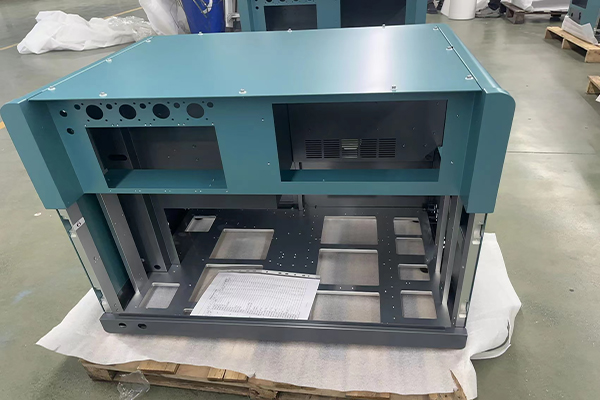
Utilizing precision techniques like laser cutting and CNC bending
Precision is the cornerstone of modern manufacturing. Advanced techniques like laser cutting and CNC bending ensure that sheet metal enclosures meet exact specifications. These methods allow you to achieve high precision and accuracy, which are essential for creating components with tight tolerances. For instance, laser cutting uses focused beams to make precise cuts, while CNC bending shapes metal sheets into desired angles with remarkable accuracy.
These techniques offer several advantages:
They produce lightweight yet durable parts.
They provide cost-effective solutions for uniform wall thicknesses.
They excel in manufacturing components like panels, brackets, and enclosures.
By integrating these methods into your production processes, you can enhance efficiency and reduce material waste. This approach supports future-proofing industrial operations by ensuring consistent quality and reliability.
Ensuring durability with superior materials and surface treatments
The durability of sheet metal enclosures depends on the materials and treatments used. High-quality materials like stainless steel and galvanized steel resist corrosion and wear, making them ideal for industrial applications. Surface treatments such as anodization and powder coating further enhance their longevity by protecting against environmental factors.
These materials and treatments not only extend the lifespan of your systems but also reduce maintenance costs. For example, enclosures with corrosion-resistant coatings perform exceptionally well in humid or chemical-heavy environments. This durability ensures that your essential IT solutions remain protected, even in the harshest conditions.
Guaranteeing reliability through rigorous quality control processes
Quality control is vital for ensuring the reliability of sheet metal enclosures. Rigorous inspections and audits help identify and correct deviations from standards, reducing the rate of enclosure failures. These processes evaluate every aspect of production, from material selection to final assembly, ensuring compliance with industry standards.
Quality control measures also support predictive maintenance solutions by providing accurate data on equipment performance. This integration allows you to address potential issues before they escalate, minimizing downtime and enhancing operational efficiency. By prioritizing quality assurance, you can build trust in your systems and ensure long-term success.
Tip: Investing in advanced manufacturing techniques and robust quality control processes is essential for creating durable and reliable enclosures.
Durable sheet metal industrial enclosures are essential for maintaining the integrity of your equipment in demanding environments. They protect machinery from environmental damage, enhance worker safety, and streamline operations. Customization options allow you to adapt these enclosures to your specific needs, ensuring optimal performance. Advanced manufacturing processes, like laser cutting and CNC bending, ensure precision and durability. Investing in these enclosures is essential for long-term success, as they provide reliable protection and improve operational efficiency. Their role in industrial settings is not just beneficial but essential for achieving sustainable growth.
FAQ
What are the key benefits of using sheet metal enclosures in industrial settings?
Sheet metal enclosures protect equipment from environmental damage, enhance safety, and improve operational efficiency. They also reduce maintenance costs and extend machinery lifespan. Their durability and customization options make them essential for demanding industrial environments.
How do sheet metal enclosures ensure worker safety?
Enclosures create a physical barrier around hazardous equipment, preventing accidental contact. This reduces risks like electrical shocks and burns. By meeting safety standards, they also help you comply with regulations and foster a safer workplace.
Can sheet metal enclosures be customized for specific needs?
Yes, you can tailor enclosures to fit your equipment’s size, function, and environment. Custom features like ventilation, access panels, and corrosion-resistant coatings ensure optimal performance and durability in various industrial settings.
What materials are commonly used for sheet metal enclosures?
Manufacturers often use stainless steel, galvanized steel, and cold-rolled steel. These materials resist corrosion, wear, and environmental stress, ensuring long-lasting protection for your equipment.
How do advanced manufacturing techniques improve enclosure quality?
Techniques like laser cutting and CNC bending ensure precision and durability. These methods create enclosures with tight tolerances and consistent quality, reducing material waste and enhancing reliability in industrial applications.
Tip: Investing in high-quality enclosures with advanced manufacturing ensures long-term efficiency and protection for your equipment.
